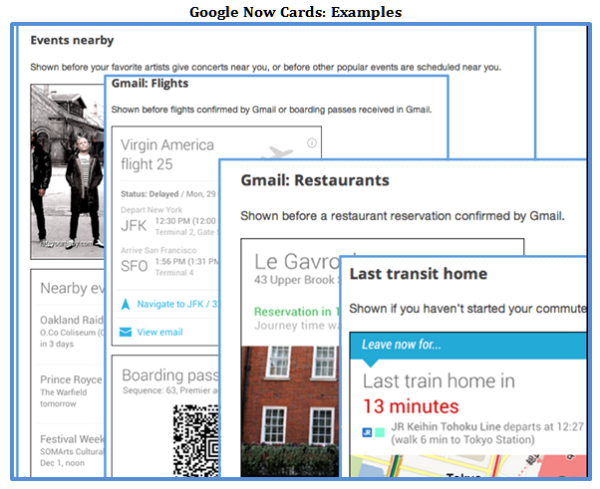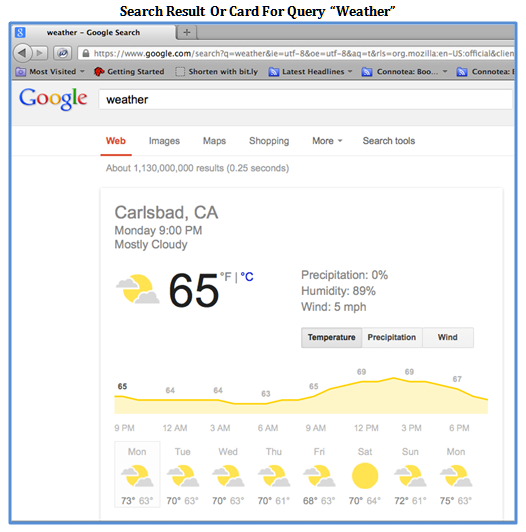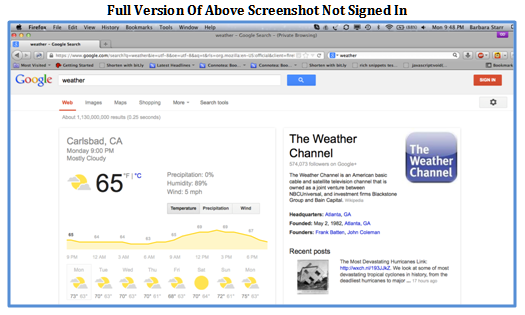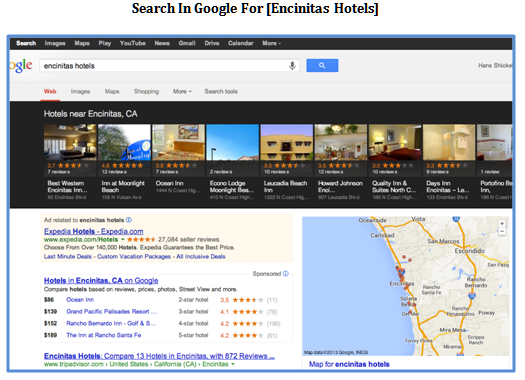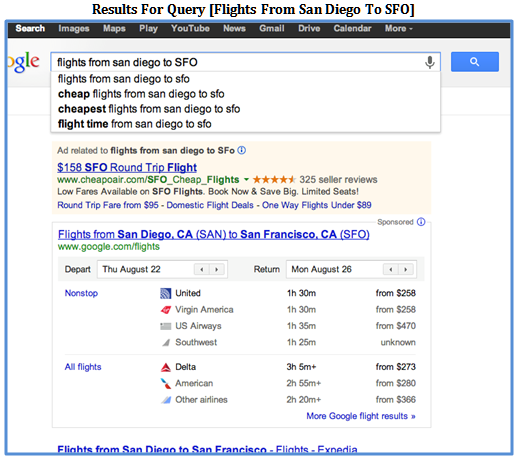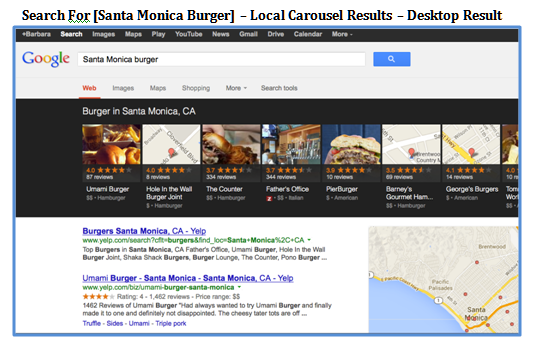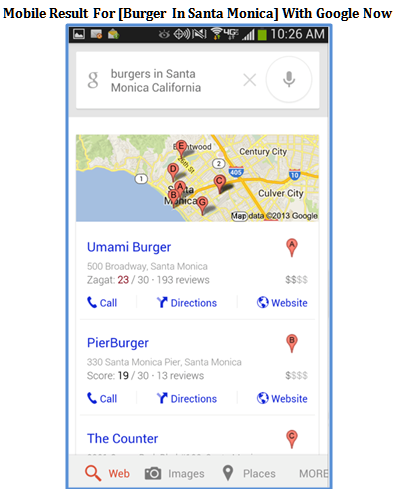Used To Searching For Content? Now, Content Searches For You
When it comes to search, we are accustomed to queries that are initiated client-side and not server-side. But, Google Now and similar services are altering this long-standing trend. Search, by definition, implies user-initiated actions. How is this changed by technology such as Google Now and Google’s Knowledge Graph? First, what is Google Now? Available within the […]
When it comes to search, we are accustomed to queries that are initiated client-side and not server-side. But, Google Now and similar services are altering this long-standing trend. Search, by definition, implies user-initiated actions. How is this changed by technology such as Google Now and Google’s Knowledge Graph?
First, what is Google Now? Available within the Google Search mobile app, Google Now not only answers user-generated queries but also uses predictive technology to provide the user with information he or she might need throughout the day in the form of “cards.” According to Google:
Google Now cards are displayed when you’re most likely to need them. Most are based on information available to your Google account, such as your current location, recent searches, or calendar entries.
To my ears, this is a definitive statement implying push technology — which is, in fact, extremely helpful to a mobile searcher. Some examples of these cards are illustrated in the graphic below.
An Expansion Of The Knowledge Graph
The notion of content searching for you rather than vice versa is not entirely new for Google users. Google’s Knowledge Graph has been using and improving this technology for some time now. For example, when I type in the search term [weather] on my desktop computer (even using Firefox and not signed in to Google), I get the following result:
In fact, if you look at the full version of my screenshot below, you can see that not only was I not signed in, but “private browsing” was on in Firefox. However, this query did not really need to access my browsing history in order to further refine and add context to my query — nothing more than geolocation was sufficient in this case!
There has also been strong awareness of other types of “answers” in enhanced displays in Google’s results, especially in regard to the travel and leisure industry verticals.
I noticed recently when I searched for the phrase [Encinitas Hotels], I received the following sponsored result:
You can see here how the knowledge graph is being monetized. Clearly, the middleman has been cut out here — in this case, the booking agency. Does this now mean the consumer is getting a better deal due to more competition among booking agencies, and perhaps lower commissions? Or are those fees going elsewhere?
In either case, semantic search on flights and/or hotels certainly creates a more efficient search, providing a better user experience. Take a look at the results for the flight search query [Flights from San Diego to SFO].
Google is clearly leveraging their semantic search results with a version of what I would call “parameterized queries” — semi hard-coded natural language queries with placeholders for variables such that the query would read: “flights from ?loc1 to ?loc2” (where ?loc is an airport name or code).
One thing is for sure — we are going to be seeing some pretty amazing features being rolled out in Google over the next couple of years (and in other search engines, too). And, the pace of innovation at Google on their road to the Star Trek computer of the future seems pretty well laid out.
Marking up your pages with semantic markup clearly lends itself well to these “card”-like displays in Google’s latest search innovations, such as Google Now and Google Glass. In depth articles are just the latest and newest form of cards (or enhanced displays) that Google has announced. You can rest assured it will not be the last.
Semantic Search’s Impact On Local, Mobile Marketing
When dealing with local search on mobile devices, a local business’ placement within the top spots is even more critical. If you are not the very first item in the Carousel (or at least among the first few), you may as well forget about it — you simply have no visibility in the graph. Due to the smaller screen size, the large selection of potential answers in the Carousel cannot be displayed.
Take the following search for a great burger in Santa Monica. On a laptop (or at least on mine when signed in), a search for [Santa Monica Burger] returns the SERP shown below, with Umami Burger in the #1 spot on the local carousel.
In mobile results, you can clearly see the importance of being #1 in the local carousel due to smaller screen real estate:
Semantic Markup & Knowledge Cards
Embedded semantic markup clearly gives a great advantage when dealing with answer engines by providing them with machine readable information. When considered in the context of a searcher’s personal information (such as geolocation, time of day, or previous search history), Google can narrow down the content within its index to potentially yield an answer right in the SERP.
Adding Schema.org markup to Gmail takes this yet another step forward, turning Google Now into the personal assistant SIRI is purported to be (presuming you have your privacy settings set to give Google permission to access this information). Having boarding passes, flight delays, dinner reservations, hotel booking info, and event reminders pushed out to you in a timely manner (in the form of cards) is certainly a super useful feature.
These cards are pushed out as you need them. This means that user queries can even potentially be predicted — a capability that, presumably, will be growing with time.
Moreover, with the advent and growth of the Internet of things, intercommunication between devices will also be of a push nature, moving this trend even further along that path (e.g., alerts for relevant information). This means that content will be searching for you more than ever.
So, how does this affect the practice of those involved in search engine optimization? Will SEO become a thing of the past, or will its nature and techniques just need to adapt?
To Summarize
Google is playing with the best formats/visualizations to display the structured data it acquires from semantic markup on webpages (usually a variant of schema.org) combined with the structured data in its Knowledge Graph.
Google typically runs multiple display experiments at a time and presumably uses the results to optimize the user experience. All of this synchronizes well with the dream of the Star Trek computer and the rise of the Answer Engine.
In order to enhance your website and best optimize it for today and for the future generation of Search, make sure to
- Mark up as much content as you can
- Ensure you leverage authorship status and publisher information in Google
- Mark up information even in advance.
Schema.org is dynamic and growing; therefore, smart marketers are those who mark up as much information as possible to get the necessary lift as these changes take effect.
Contributing authors are invited to create content for Search Engine Land and are chosen for their expertise and contribution to the search community. Our contributors work under the oversight of the editorial staff and contributions are checked for quality and relevance to our readers. The opinions they express are their own.
Related stories
New on Search Engine Land
